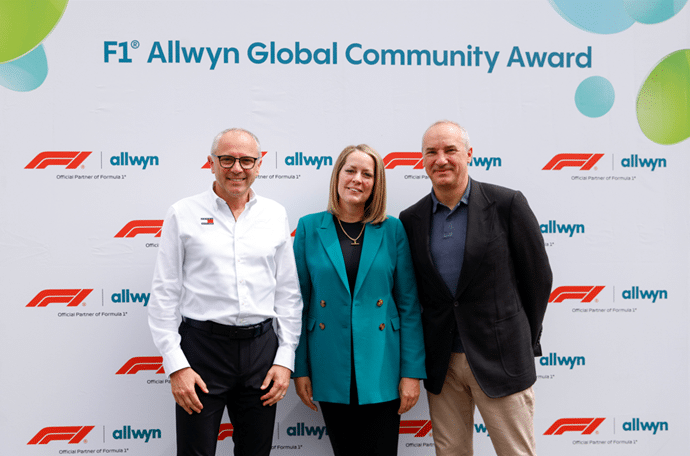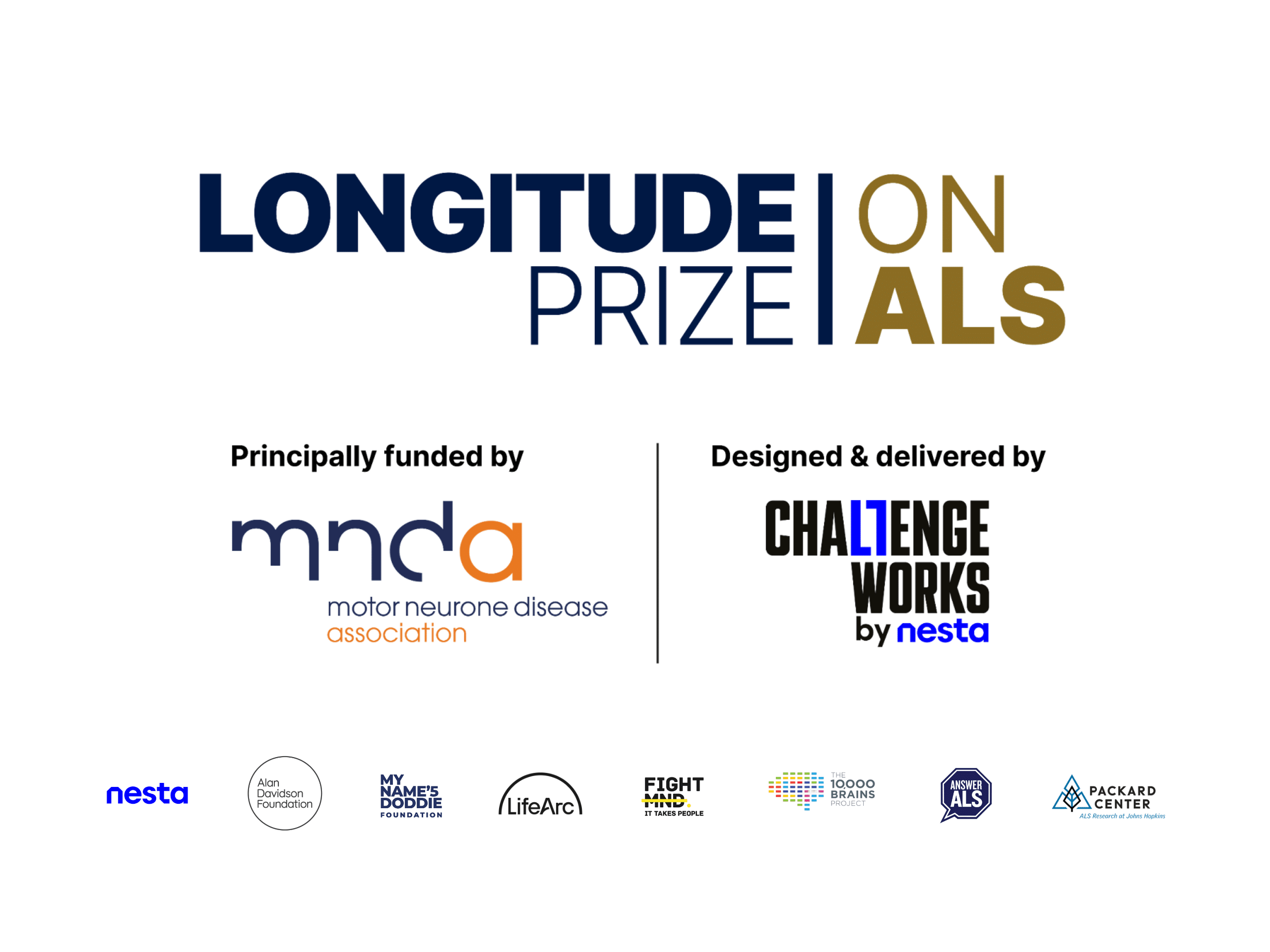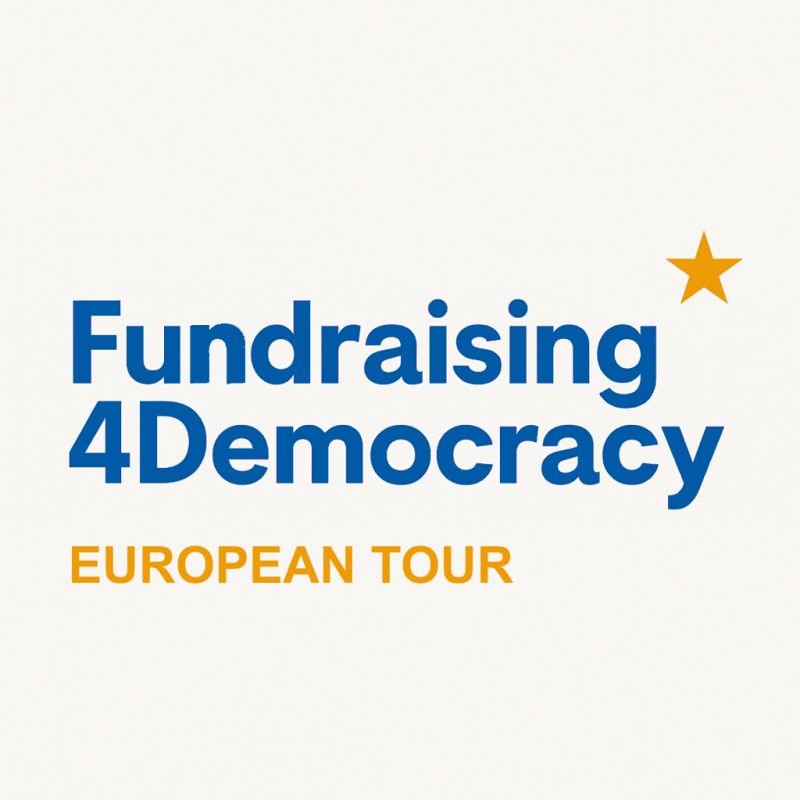Feenix: uniting communities to remove the barriers to education
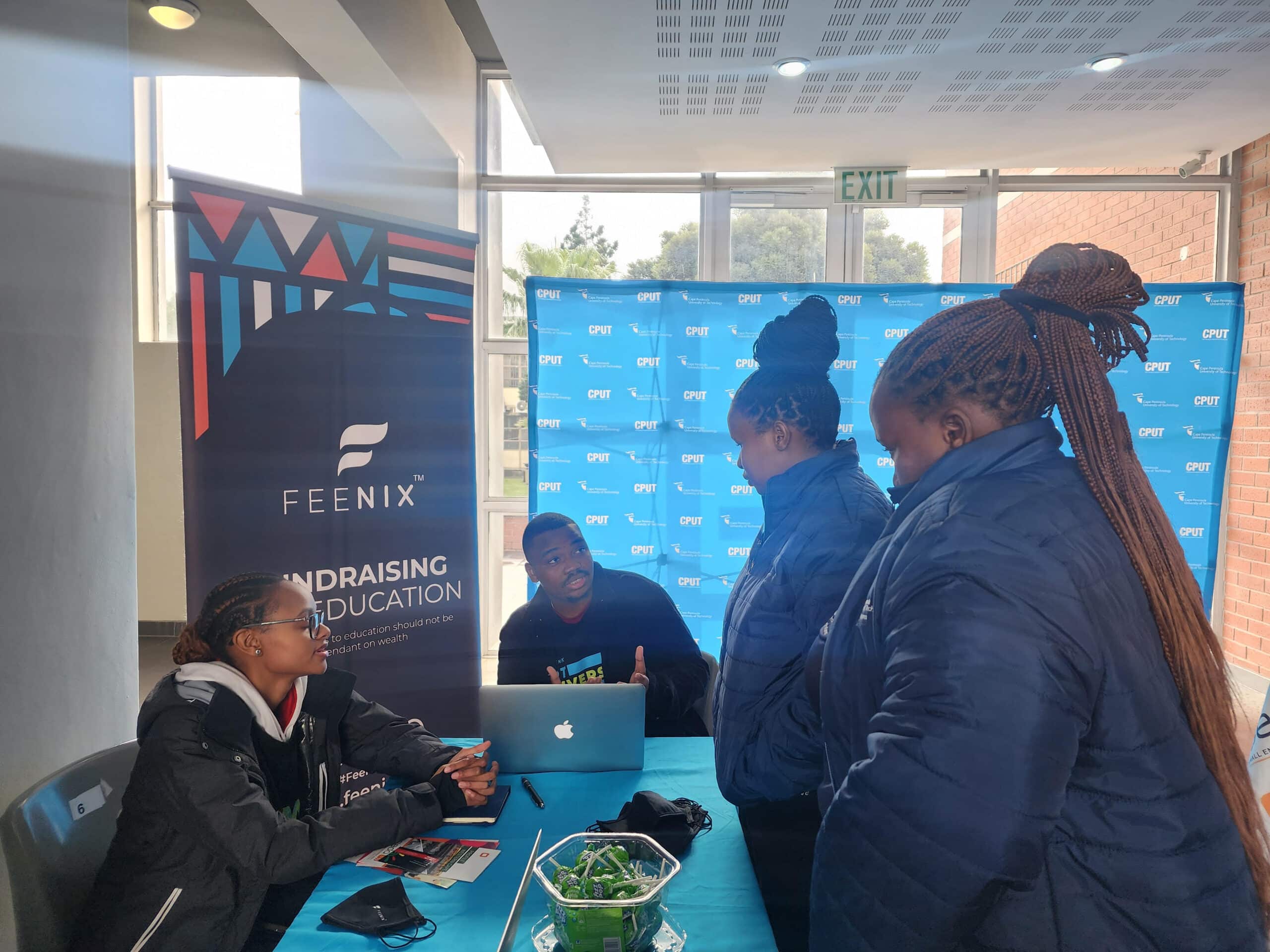
Launched in 2017 to help more young people access education, in just six years Feenix has raised over 172 million rand to support tertiary education students in South Africa with funding, digital resources, and a growing range of other holistic services.
The only organisation in South Africa to combine crowdfunding and bursary management, Feenix launched in response to #FeesMustFall, a movement born out of young people protesting against the unaffordability of education and fighting for access to equal opportunity.
Providing a solution through crowdfunding
In the search for an answer that galvanised government, businesses and individuals alike, Standard Bank South Africa stepped forward to pay for the incubation of an idea that could provide a sustainable, scalable solution. This is where Feenix began, as a crowdfunding platform connecting students needing support with people willing to help. It was a natural evolution of the community’s giving and shared objective of helping others to help the whole country that has always been part of South Africa’s “Ubuntu” spirit, which believes in a universal bond of sharing that connects all humanity.

Cara-Jean Petersen, Feenix’s CEO, says:
“Feenix began as a tech start up taking the idea of Ubuntu and asking how do we take what our community is already doing, and digitise it? And how do we make sure it’s transparent and trustworthy?
“The name itself was developed to capture the voice of students. “Niks” is a word for ‘nothing’ in Afrikaans, and “fees” referring to student fees. So Feenix essentially means “no fees”, and that was the goal: to fundraise to the point where students had no fees and could graduate debt free.”
Feenix has since evolved to offer much more to students registered on the platform, from skills development bursary programmes and a peer-to-peer mentor programme, to holistic support – for example with financial literacy, personal mastery and job readiness, and most recently, mental health support.
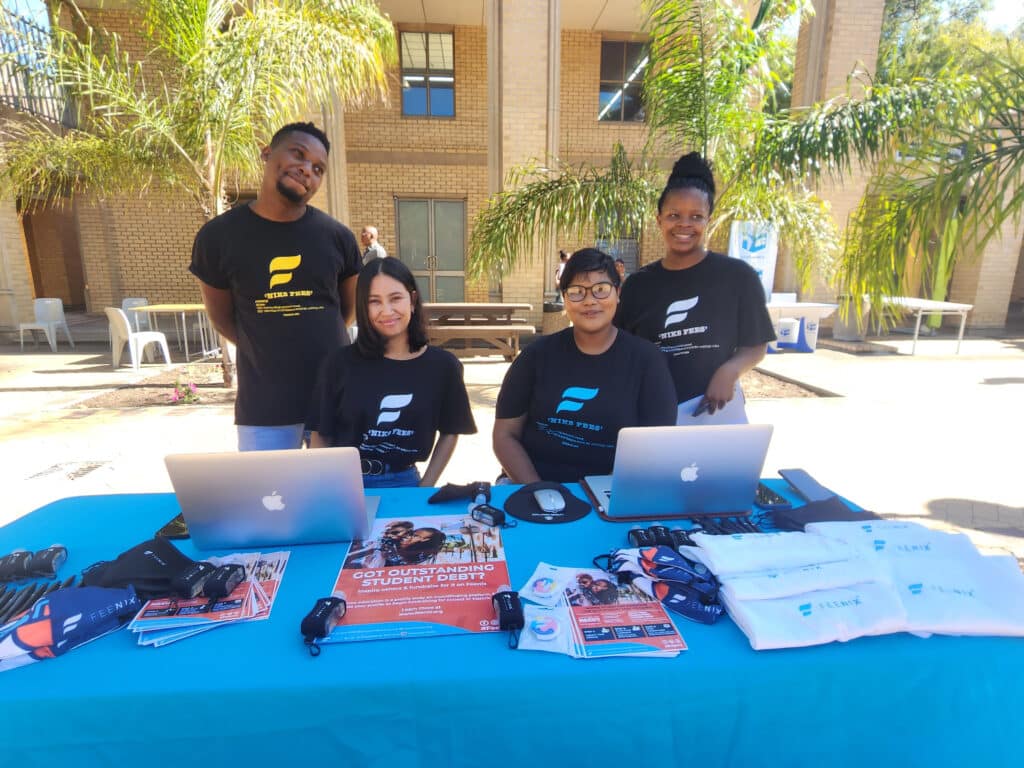
Combining forces to raise funds
To raise funds, and supported by guidance and tools from Feenix, students create a profile on the platform, and can share donation links to communities via WhatsApp, social media, and email.
“Our students have to tell their story in their own voice and be part of their own solution,” Cara-Jean adds.
“Fundraising is hard, but it’s such a beautiful skill because you have to learn personal branding, marketing, entrepreneurial mindset, networking and at times public speaking. There are so many skill sets involved that also help you thrive in life. For us, it’s really exciting to be able to impart all this to our students because we know that more than just graduating, they’re going to succeed.”
The Feenix team also fundraises, focusing on individual giving and corporate fundraising with marketing and fundraising teams working together on communicating students’ stories and the case for support through different campaigns running across the year.
On the corporate side, government policy requires businesses to give a certain percentage of their profit to skills development to ensure transformation and sustainable impact, and the bulk of Feenix’s income is from corporate donations. To maximise this, the team focuses on reaching out to businesses to explain what their support will achieve both for students and in business benefits.
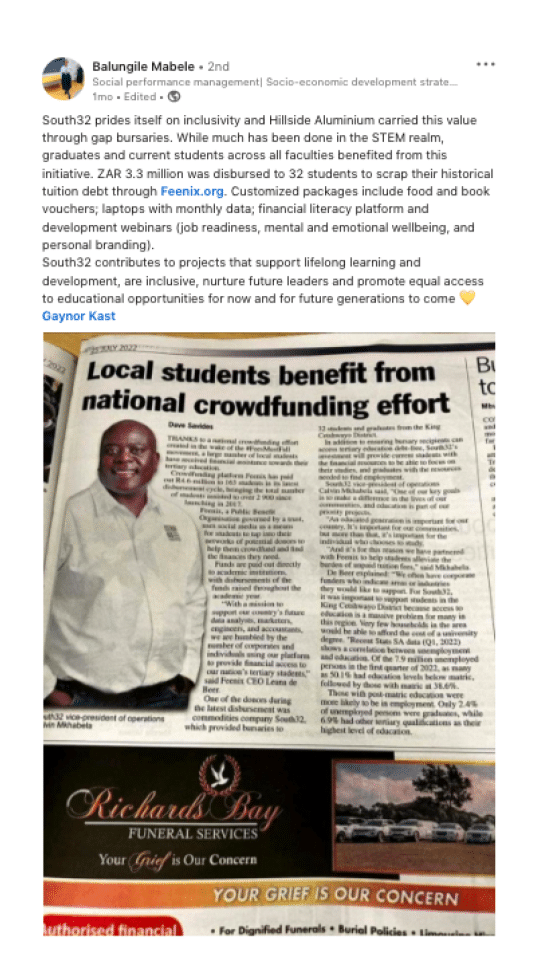
Messaging that galvanises action
Among Feenix’s regular campaigns are two annual appeals around key events for South Africa’s young people. One takes place during Youth Month in June, specifically around Youth Day on June 16. This takes place in remembrance of the 1976 Soweto Uprising, which saw students take to the streets against the apartheid regime’s education policies. The second runs at the end of the year, and focuses on graduation.
Cara-Jean explains:
“A lot of students receive an invoice instead of a certificate during graduation because they have outstanding debt. So with this campaign, we use those stories of struggle and disappointment to motivate people, to say ‘you could be helping a student get their certificate that unlocks a job opportunity, and moves our country forward’. It’s a campaign that really comes back to the bigger vision of why we’re doing what we’re doing.”
Various initiatives drive donors to the platform, where for those with an idea in mind of who they’d like to help, student profiles are searchable: by institution, degree type, and year of study. For those who want to leave it to Feenix, there is also a pool fund they can donate to, which distributes the money using an algorithm in alignment with B-BBEE regulations.
A standout campaign supported by data
As well as its regular campaigns, Feenix is quick to act whenever there’s an urgent need. At the height of the pandemic, when everyone was in lockdown and universities had started distance learning, it launched #CapTheGap – one of its most successful campaigns.
“An alarming amount of our students didn’t have internet, or laptops, and were trying to do assignments on their cell phones,” explains Cara-Jean. “We urgently fundraised for laptops, food, and data, and raised around R3.4 million in three months, supporting 463 students across 26 public universities. We were able to get corporates and individuals to make donations and distributed this to the students whom the universities had identified as being most vulnerable.”
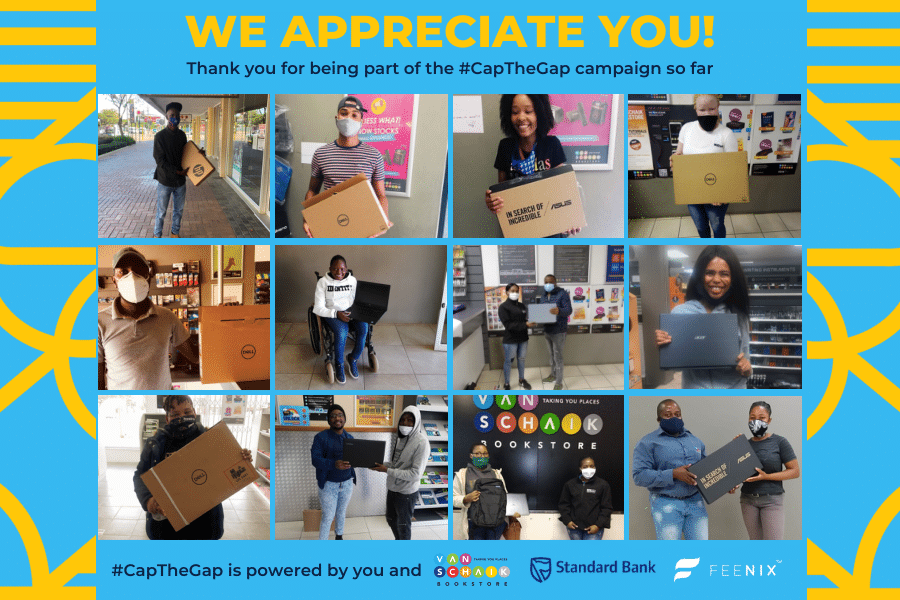
A second key contributing factor to the campaign’s success was the fact that it was supported by data:
“Before lockdown, we had commissioned research to ensure that we weren’t making assumptions about the resources students need. We started with surveys and interviews in their homes and then digitally when COVID hit, so when we launched this campaign, we had the data to say: “Only 6% of our students reported having adequate resources at home (such as food, a place to study and internet) to continue their academic year and they need your help!”
“We were able to confidently challenge the assumptions that education is free and that students being at home alleviated their financial burdens.”
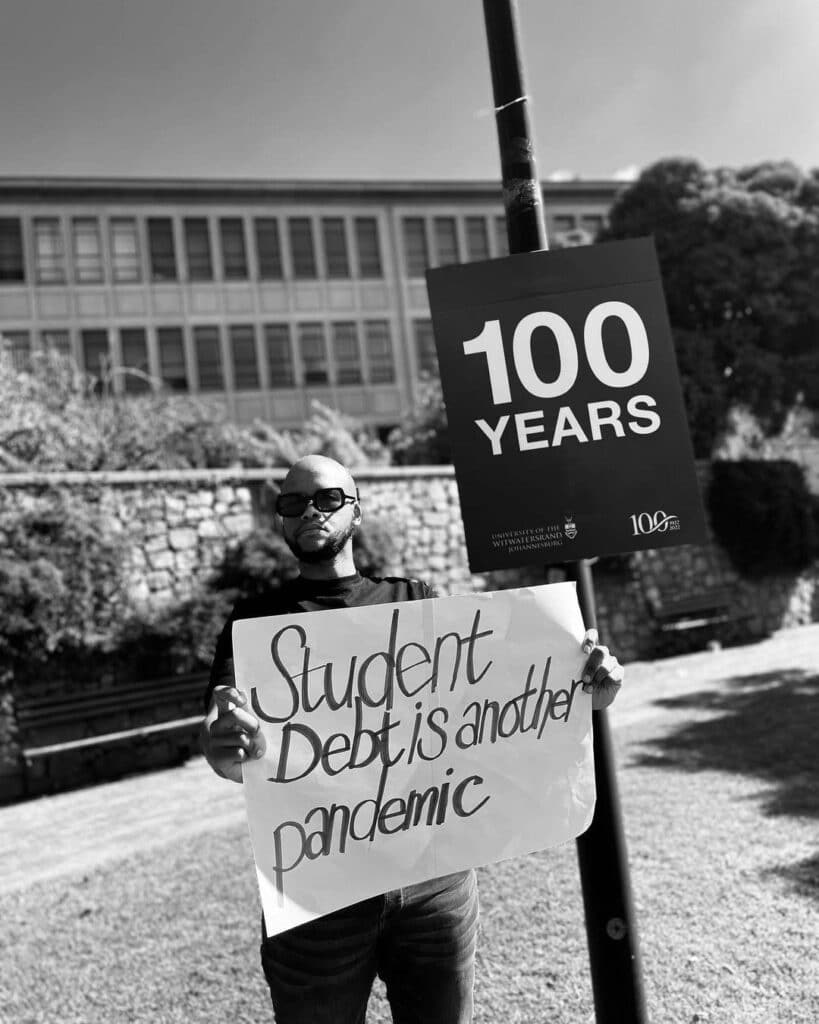
Tangible impact
Feenix’s two-pronged approach to fundraising clearly works. Despite the challenges of the past few years, in the last four it has seen an outstanding 629% growth in income. In fact, while its first year saw it raise over R22mn, between 2019 and 2022, it achieved just over R139.5mn.
Of course, success is about the impact achieved. Since 2017, 3,934 students have been able to access education and holistic support that will enable them to thrive and move South Africa forward – and it’s a figure that’s rising all the time.
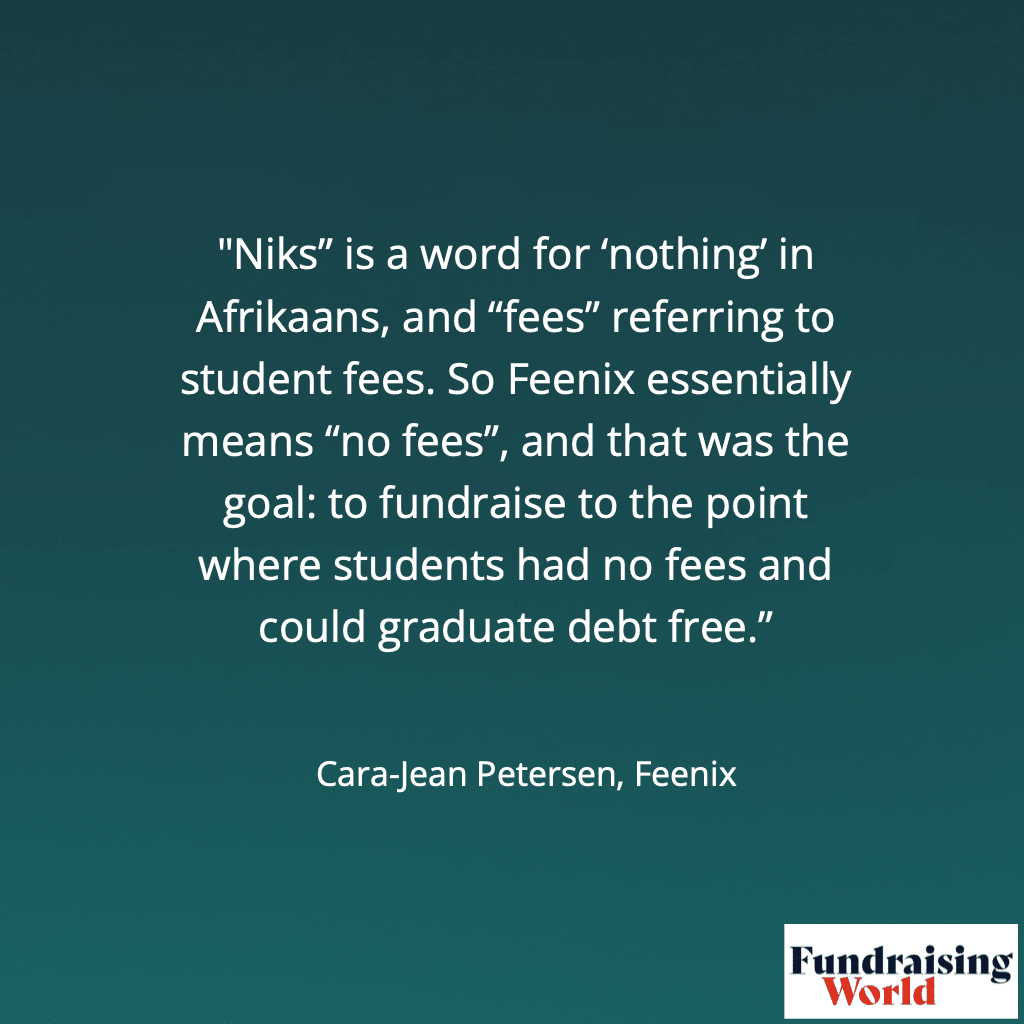
6 key learnings from Cara-Jean
1. Foster a strong relationship between CEO and Head of Fundraising
They need to be comfortable challenging one another, and on the same page regarding the organisation’s vision in order to keep the organisation agile, tap into new opportunities, and remain uncompromisingly committed to meaningful, impactful work.
2. Remember your why
Your mission and vision must be clear and visible to all. If you’re strong on your “Why” as an organisation, recruit individuals based on vision and values alignment, and ensure they own it too, it will help your organisation remain passionate and not lose its soul.
3. A growth mindset is essential
A growth mindset is about having a positive association to change and remaining agile as the organisation grows and evolves to achieve the bigger vision. To truly lean into growth, you require a strong leadership team that helps cultivate this mindset within the organisation and reassures the team that growing pains are a natural part of this process.
4. Marketing and fundraising should work as one team
It is critical that Fundraising and Marketing teams are aligned as one to ensure that a trusted brand is established that all are aware of, that donors are acknowledged and made to feel good about their support and that the way is paved for the Fundraising team to enter any room with confidence when pitching the cause and seeking support.
5. Everyone’s a fundraiser
It’s a mindset within the organisation that we take very seriously. As a fundraising organisation it is important that every team is responsible for the fundraising target and desired impact, and contributes accordingly, whether they’re answering the phone, talking to students, or approaching a corporate.
6. Fundraising is a skill that needs to be taught and practised
In order to be true to the mindset that “everyone is a fundraiser”, as an organisation we are intentional about educating and equipping our team as fundraisers and sharing best practices with one another throughout the year. For example, we close the office every year so the entire team can virtually attend the International Fundraising Congress to remain informed of fundraising best practices and new innovative strategies.
